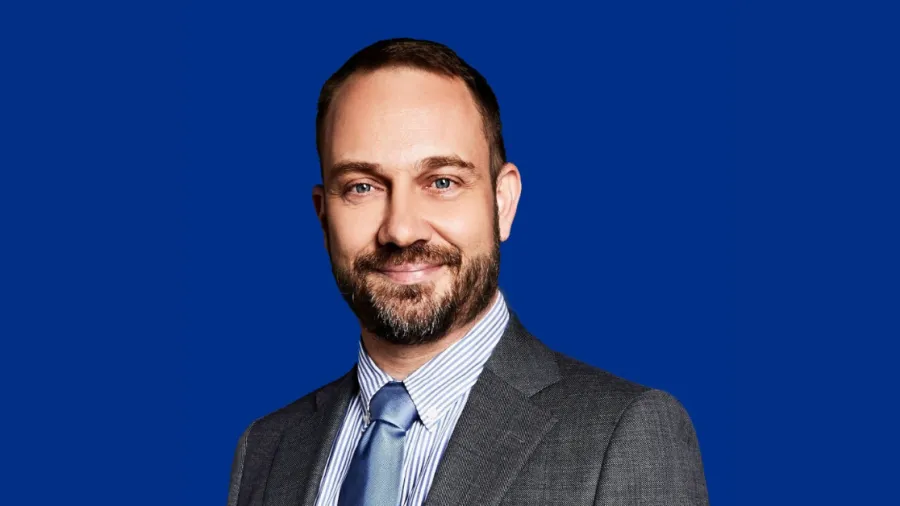
KPMG's Guillaume Sachet on navigating healthcare’s evolution: Cross-border collaboration crucial to fostering trusted AI, innovation
Sachet recommended healthcare organisations collaborate, learn from partners outside healthcare, and be bold to embrace new trends.
The healthcare sector in Asia is undergoing a period of significant transformation, driven by factors like rising healthcare costs, ageing populations, and the rapid adoption of emerging technologies. To navigate this evolving landscape, healthcare organisations will require strategic foresight and a commitment to innovation.
As a judge for the Healthcare Asia Awards 2024, Guillaume Sachet, Partner, Advisory, KPMG in Singapore, sheds light on the key trends shaping the future of healthcare in Asia. Sachet leads the firm’s healthcare and life sciences sectors and has over 25 years of experience in these areas.
Prior to his current role at KPMG, he has held leadership positions at multinational corporations, which includes spearheading digital transformation initiatives and strategic development across Southeast Asia. His experience and expertise in the digital and healthcare domains have made him a valuable source of insights for healthcare organisations navigating the complexities of the Asian market.
AI, collaboration and patient-centricity
Artificial intelligence (AI) has the transformative potential to reimagine the healthcare industry, but this will have to be backed by a responsible AI framework that is supported by quality data, says Sachet.
“Healthcare organisations have the opportunity to use AI to boost productivity and automate back-office processes, allowing them even more time to apply AI towards improving patient health, such as reducing operational risks to provide safer patient care or using AI in patient diagnostics and treatment,” he says.
“However, one of the biggest challenges for healthcare providers will be in building a trusted, responsible and ethical AI framework, with a strong emphasis on data,” he says, highlighting the need for accurate and reliable data to drive meaningful results with AI.
Hence, instead of adopting a passive approach, businesses will need to make collaboration among stakeholders a priority to ensure that AI can be implemented responsibly. This will allow them to maximise healthcare outcomes while minimising risks.
Sachet acknowledges that the heterogeneity across Asia could be a key challenge which may hinder the widespread adoption of digital health solutions. Organisations may have to grapple with variations in data access, availability, representation, quality, and interoperability standards. They will also have to navigate different government regulations, social norms, and cultural practices, among other factors.
With this, he suggests co-designing solutions with clinicians and collaborating with the broader healthcare ecosystem, including policymakers, payors and providers, to address these challenges and enable wider implementation.
For instance, KPMG has been partnering with organisations in the medical technology (MedTech) industry to promote ASEAN data interoperability. Additionally, the firm has been working with various government ministries to support data harmonisation within and across borders.
In addition, Sachet underlines the importance of understanding diverse patient populations and their specific needs when developing innovative solutions. Ultimately, it is crucial to tailor solutions to address the specific challenges and preferences of the target market, so as to ensure alignment with existing care standards, while considering the broader healthcare ecosystem, including the needs of payors and clinicians.
The power of cross-border collaboration
Cross-border collaborations are a powerful tool for accelerating AI adoption, market access and penetration across Asia, especially as it may not be feasible for a single entity to have a deep understanding of all markets.
He says: “Healthcare organisations will need to move fast to seize the opportunities brought on by AI. This is where establishing clear joint value propositions, roles and responsibilities are key to ensuring successful partnerships, and to really drive progress at scale.”
According to Sachet, organisations can also stay ahead of the curve by looking outside traditional healthcare boundaries for inspiration and potential partnerships, and actively collaborating with other stakeholders.
Fostering a culture of continuous learning and adaptation in the workforce will also be crucial ingredients. Additionally, he emphasised the importance of being bold and comfortable to be “industry first movers”, to make the most of emerging trends.
As a returning judge for the Healthcare Asia Awards 2024, Sachet highlights two considerations in mind when identifying healthcare initiatives that are exceptional: technology adoption and empathy. He underscores the far-reaching impact of technology in transforming the healthcare industry while also acknowledging the importance of the human touch even amidst these advancements.
“As more organisations adopt technology, and in particular AI, they will have to bear in mind that the human factor remains critical, as ultimately, healthcare is about providing the best care to patients and saving lives,” he says.











 Advertise
Advertise













